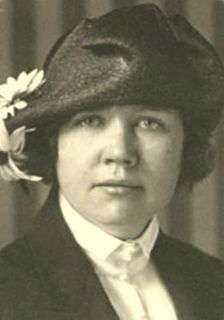A Quote by Jonathan Swift
Men who possess all the advantages of life are in a state where there are many accidents to disorder and discompose, but few to please them.
Related Quotes
The true forms of government, therefore, are those in which the one, or the few, or the many, govern with a view to the common interest; but governments which rule with a view to the private interest, whether of the one or of the few, or of the many, are perversions. For the members of a state, if they are truly citizens, ought to participate in its advantages.
We had a few tragic accidents in our state, as they've had in every state, from train crashes on down. And really, no text is worth dying for; that is our message to young people. And this is such a new phenomenon when you look at the number of texts and how they've increased exponentially in just the last few years.
I please myself with imagining a State at least which can afford to be just to all men, and to treat the individual with respect as a neighbor; which even would not think it inconsistent with its own repose if a few were to live aloof from it, not meddling with it, nor embraced by it, who fulfilled all the duties of neighbors and fellow-men. A State which bore this kind of fruit, and suffered it to drop off as fast as it ripened, would prepare the way for a still more perfect and glorious State, which also I have imagined, but not yet anywhere seen.
No man is greater than his prayer life. The pastor who is not praying is playing; the people who are not praying are straying. We have many organizers, but few agonizers; many players and payers, few pray-ers; many singers, few clingers; lots of pastors, few wrestlers; many fears, few tears; much fashion, little passion; many interferers, few intercessors; many writers, but few fighters. Failing here, we fail everywhere.
A State, in idea, is the opposite of a Church. A State regards classes, and not individuals; and it estimates classes, not by internal merit, but external accidents, as property, birth, etc. But a church does the reverse of this, and disregards all external accidents, and looks at men as individual persons, allowing no gradations of ranks, but such as greater or less wisdom, learning, and holiness ought to confer. A Church is, therefore, in idea, the only pure democracy.
Men have their virtues and their vices, their heroisms and their perversities; men are neither wholly good nor wholly bad, but possess and practice all that there is of good and bad here below. Such is the general rule. Temperament, education, the accidents of life, are modifying factors. Outside of this, everything is ordered arrangement, everything is chance. Such has been my rule of expectation and it has usually brought me success.
The State governments possess inherent advantages, which will ever give them an influence and ascendancy over the National Government, and will for ever preclude the possibility of federal encroachments. That their liberties, indeed, can be subverted by the federal head, is repugnant to every rule of political calculation.
Assemble a mob of men and women previously conditioned by a daily reading of the newspapers; treat them to amplified band music, bright lights...and in next to no time you can reduce them to a state of almost mindless subhumanity. Never before have so few been in a position to make fools, maniacs, or criminals of so many.
Many men without morals have attacked religion because it was contrary to their inclinations. Many wise men have despised it because it seemed to them ridiculous. Many persons have regarded it with indifference, because they have never felt its true disadvantages. But it is as a citizen that I attack it, because it seems to me harmful to the happiness of the state, hostile to the march of the mind of man, and contrary to sound morality, from which the interests of state policy can never be separated.
The hypothesis I wish to advance is thatthe language of morality is ingrave disorder.... What we possess, if this is true, are the fragments of a conceptual scheme, parts of which now lack those contexts from which their significance derived. We possess indeed simulacra of morality, we continue to use many of the key expressions. But we have--very largely if not entirely--lost our comprehension, both theoretical and practical, of morality.





































